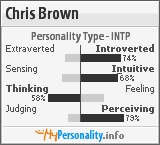After considering the long asked question of "why is christendom i.e. the church, as weak and sick as it is", in short I've considered the following: after "the dark ages", there shined down from above, a revelatory beam of hope in "the enlightenment", which resulted in a revival of historical criticism. Johann Salomo Semler, who was primarily the agent in the biblical/theological world, turned the tide of traditional dogmaticism to what today is taken for granted as the "historical-critical method" of interpretation. But as the old adage reminds us: "what God intends for our blessing, satan intends for our cursing", (or something like that) anyhoo, not long after the enlightment began, and as a sad twist to what God was working through higher criticism, their were those in the church, (and without) who began replacing the bible, with their own autonomy (God given ability to reason and capacitate) as the final authority, which gave rise to rationalism and liberalism. Upon such a faulty premise there were ramifications expressed of a disbelief and even scoffing at the supernatural. Naturally (or unnaturally) this led to the denial of such phenomenon's as the virgin birth, the resurrection accounts, Christ's miracles, etc. etc.
At the complete and polar opposite end of these views or groups (liberals), there arose a rebuttal; a voice or group that has come to be known as "the fundamentalists". This group or school of thought, in a polemic against the liberals stated and maintained "the fundamentals" with so much rigor and staunch, that anyone not upholding their "articles of faith", were deemed unregenerate. And hereto comes our dillema... In a sincere desire to contend earnestly for "the faith", somewhere we lost the content of these articles of "the faith" and magnified and shall I dare to say deified a creed, (statement of faith) and minimized the very creedal meanings. This I believe, is what has played a primary part in shaping and defining our mega-church American/Western age. To identify oneself to christendom today, one simply has to intellectually/mentally ascent and adhere to the back of a bulletin received from church. It says something like:
I believe in ...
I believe in ...
I believe in ...
If I hold to "the faith" all is well and I can sing some songs, sit and enjoy the message, and be on my merry way. Never really embracing or "trusting" Christ and His Risen Reality. Being a christian means: making sure my i's are dotted, and t's crossed theologically, but not necessarily experiencing the power of the gospel!
Saturday, October 06, 2007
Subscribe to:
Post Comments (Atom)

No comments:
Post a Comment